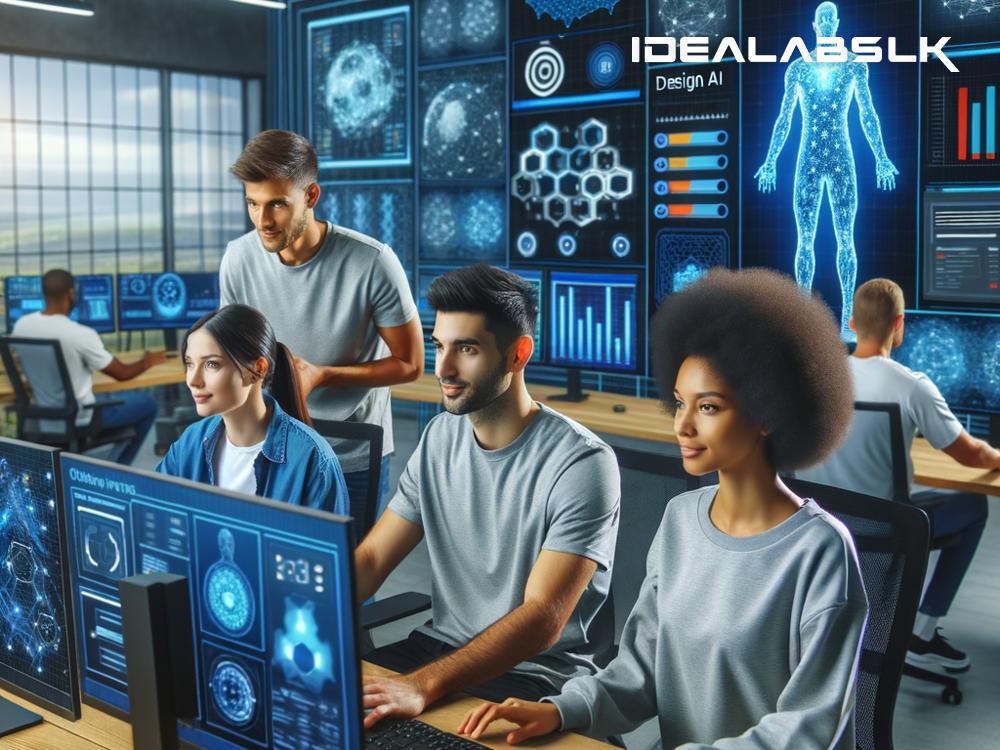Title: How AI is Transforming Game Design and Balance in FIFA 2025 and Beyond
The world of sports simulations has always been about creating as realistic an experience as possible for gamers. From the pixels mimicking your favorite soccer stars' moves in FIFA to the physics defining how the ball behaves, everything is crafted to transport you right into the stadium. But what if I tell you the next big leap in this immersive experience comes through something you can’t see but will unmistakably feel? Yes, I’m talking about Artificial Intelligence (AI) - the game-changer powering real-time, data-driven game design and balance, especially in anticipated titles like FIFA 2025.
AI is not a new player in the game development arena; it has been shaping experiences in subtle ways, enhancing everything from enemy behavior in action games to personalizing in-game advertising. However, its role is becoming pivotal in sports simulations, dynamically influencing game design and balance. So, what does this mean for games like FIFA 2025?
Real-time Adaptation and Personalized Challenges
Imagine playing FIFA and the game adapts in real-time to how you play. Sounds futuristic? Well, AI is making it a reality. Through advanced machine learning algorithms, the game learns your playing style, strengths, and weaknesses. Instead of a one-size-fits-all difficulty level, FIFA 2025 could offer a bespoke challenge tailored just for you, making every match truly unique.
Data-Driven Tactics and Strategies
Sports are unpredictable, and AI brings this unpredictability to video games. By analyzing masses of data from real-world matches, AI can simulate realistic team tactics and strategies in FIFA 2025. Teams in the game will not just react on the fly but plan and execute strategies based on their strengths, weaknesses, and the state of the match, just like their real-world counterparts.
Enhanced Game Balance for Fair Play
Balancing a game, especially one that replicates real-life sports, is a daunting task. Traditionally, game developers have had to rely on feedback and extensive testing to find a sweet spot. AI changes the game by continuously analyzing player data and making micro-adjustments to ensure fairness and competitiveness for all players, regardless of their skill level. This could mean adjusting player stats, tweaking AI behavior, or even modifying game mechanics in FIFA 2025 to maintain an even playing field.
Injuries and Fatigue That Feel Real
In FIFA 2025, the physical condition of virtual players could depend on AI-driven simulations of real-life factors like fatigue, injuries, and recovery times. These simulations can use real athlete data to predict how different players are likely to tire or recover, adding another layer of strategy about when to rest or sub a player that mirrors real-life coaching decisions.
Training AIs to Think Like Coaches
What if the AI in FIFA 2025 could think like a soccer coach? This isn’t as far-fetched as it sounds. By training AI using data from actual games and coaching strategies, developers can create AI opponents that adapt their tactics based on the flow of the game. This could lead to matches where no two encounters feel the same, pushing players to constantly evolve their play style.
The Impact on eSports
The rise of eSports has been meteoric, and AI-driven game design could further revolutionize this domain. With AI ensuring game balance and offering personalized challenges, eSports tournaments in games like FIFA 2025 could become more competitive and engaging. Viewers could see teams employing novel strategies mid-game, directly influenced by AI analytics, making each match a nail-biting experience.
As we can see, the role of AI in sports simulations like FIFA 2025 is not just about enhancing individual features but transforming the entire gaming experience. From creating dynamic, challenging environments that adapt to each player to ensuring fair play and realistic simulations, AI is set to redefine what we expect from sports video games.
In conclusion, the future of sports simulations is bright, and AI is the shining star leading this charge. As gamers, we're standing on the cusp of a new era where our virtual sporting experiences are more realistic, engaging, and personalized than ever. FIFA 2025 could very well be the first glimpse of this exciting future, and I, for one, can't wait to see it unfold.

